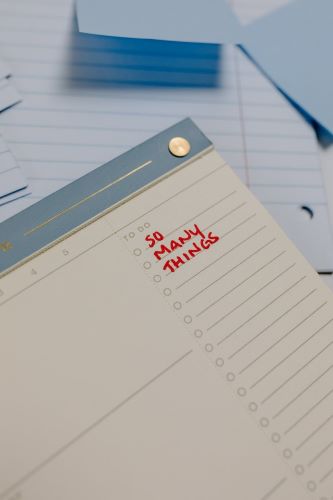
I need you you take a deep breath here and hear me out.
I’m writing this after sitting back and not reacting to what has been a two day series of events that has become quite predictable in our community as the private messages rolled into my inbox: “why is he in your Facebook group” or “why didn’t you like that post” or “why did you like that post” or “how can you still support her” or “how can you not support her”. Comically, the last two quotes were about the same BOE Candidate. I just sat back and watched with the exception of posting a response to some nonsense going on in other spaces. I was also really not feeling well and am still making hourly toilet runs as I’m writing this.
This week we have seen folks on all sides of this issue bungle what should be a serious and authentic discussion based on the best interests of our children. Instead of serious discussion, we saw provocative memes, screenshots of those memes, high-octane political opportunism, and rabid condemnations instead of engagement.
After the dust settles, nothing will change. I know this because it’s how we debate everything in Berkeley Heights.
Are there only two genders? In my mind -that’s not the most important question for the context of this discussion and this is too short an article to get into sex vs gender, phenotype and karyotype chromosomal blah blah etc..
The question neglects the reality that language is a subjective filter; there are very few genuinely knowable truths and the more meaningful underlying discussion that can be had. Pre-Adolescence and Adolescence can be confusing times for children, and giving space and language to that confusion – a way for them to describe it – does no one any harm.
Sexuality can be fluid for adolescents and even adults (depending on the circumstances), and it is also complicated. To say it is purely genetic or biological or to say it is purely socially constructed not only contradicts the research but pretty much everything that we know about how people develop. Evolutionary psychology and a multitude of developmental theory posits that our shaping is a complicated process that involves predispositions connected to survival, procedural memory connected to events that occur to us in our lives, whether or not basic needs are met, upbringing, attachments, transactions, the context during those transactions, etc etc etc – everything.
Our current context adds fuel to the fire- Instagram with filters and unrealistic portrayals, pornhub, fashion outlets, politicized messages about sex from both sides – drumming into our children’s and teens eyes and ears.
So regardless of your position on sex, sexuality, or sexual identity – if you want to help our kids, consider not viewing it through a political lens. Consider not making it about arriving at some objective truth you hold and maybe approaching the issue from the perspective of efficacy. What can work and what can we agree on instead of obsessing on what another person’s beliefs mean about them.
(1) Is introducing a broader language for teens and kids who might be struggling with sexual identity – flexibility in their language- the ability to label and normalize a struggle really that terrible? Will the world end and your children be corrupted if a few people want to be referred to as “they” or them” or whatever?
(2) Will it harm your kids if teachers provide information on something they may already know – but from a responsible adult? Isn’t it better they have a forum they can discuss these issues freely without the ears of a parent whose very presence might stifle questions they may feel too embarrassed to ask? Answers to questions that might lead to safer and more effective decisions? To feeling less alone?
(3) Is turning this into a political hammer on either side – in front of kids who might be struggling with this the best call a community of educated adults can make? Is positional militancy here really the thing that will produce a desirable outcome? Wouldn’t it be better to have a community that buys into a solution? Wouldn’t that community be more apt and capable of helping our kids and teens instead of viewing them as a flag representing whatever position we hold?
(4) Is it better to use provocative memes, screenshots, shame, and community pile-ons that do nothing but galvanize two sides into a current position or is it better to engage in meaningful dialogue that seeks compromise and understanding – even if the other person “started it” or you “hate them”? Even if you have to hear uncomfortable things you disagree with to come to a workable solution?
Has our current approach or debate changed any minds?
Our District’s response to this has been nothing short of comical “the state is forcing us to do this, ” absolving themselves of what leaders ought to be doing here. Add to this that meetings are only once a month, 5 hours long, crammed with 100+ pages of policy changes – and the District’s only forum to discuss this – the fiasco of the last two days is a natural outcome.
But it’s not just our District leadership. Our community has a pretty bizarre and disturbing approach to tackling these issues and others- straight out of the depths of middle school. If we are going to help our kids and young adults, we need to change the course we take in coming to a consensus on this and other issues.
I don’t have the answers on what would constitute a solution – I have a perspective. You can disagree with that perspective, and it’s fine but despite that, I’m sure we can probably arrive at steps that can help our students we can both live with – we owe our kids at least that much.
And we should do this not because the “state is making us” but because we genuinely want to help our students.
Related Articles:
DEI: AN OPPORTUNITY TO IMPROVE OUR SCHOOLS AND OUR STRATEGIC PLAN


